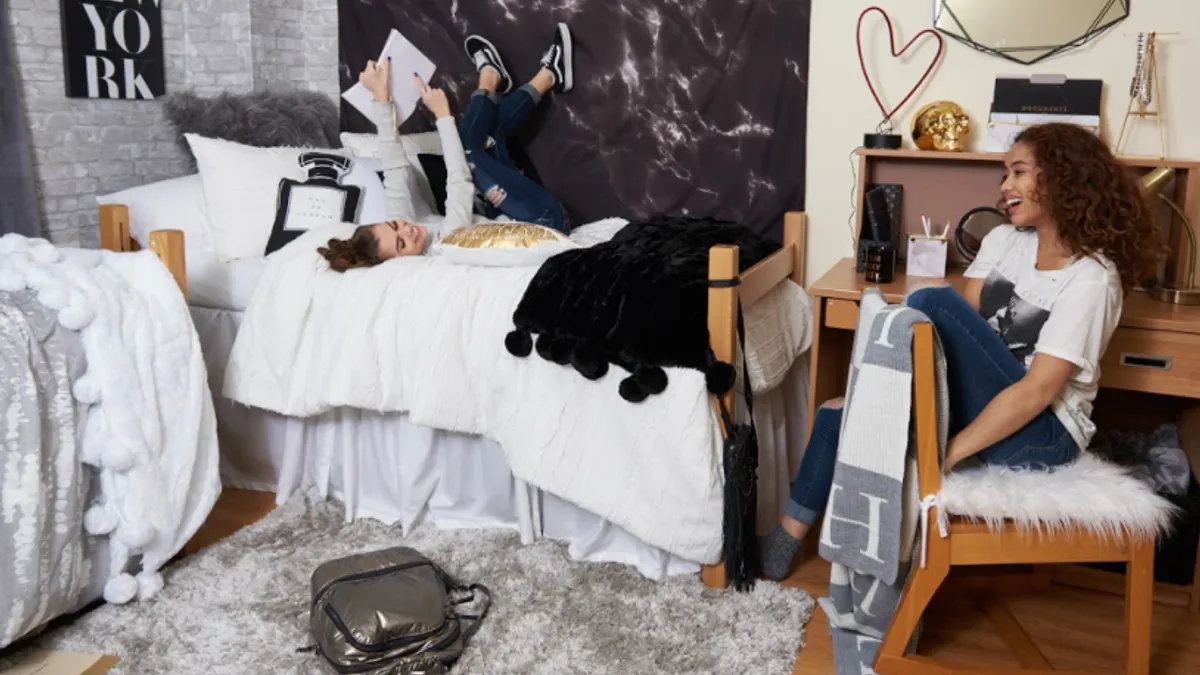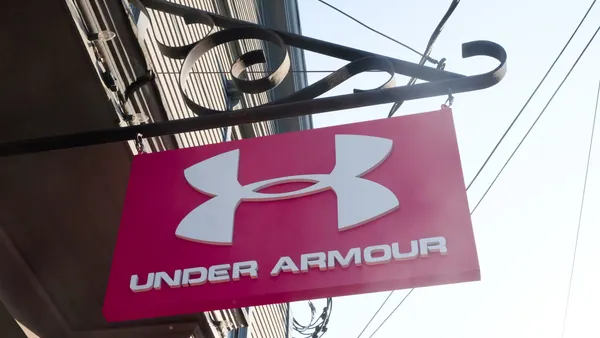Dive Brief:
- Expanding its reach in the category, Williams-Sonoma has acquired the intellectual property of college decor company Dormify, according to a company press release Wednesday. Terms of the deal were not immediately available.
- Williams-Sonoma (which operates banners including its namesake brand, Pottery Barn, West Elm, Rejuvenation and more) will relaunch Dormify in 2026. The current Dormify website notes it is working on a new assortment and directs customers to the Pottery Barn Dorm e-commerce site.
- The retailer said this acquisition allows it to “capture market share and unlock white space across key demographic and lifestyle segments,” per the release.
Dive Insight:
Williams-Sonoma is eyeing college-aged consumers to help further grow its customer base.
“The acquisition of Dormify’s intellectual property aligns with our strategy to build and acquire brands that meet customers at every stage of life across various aesthetics,” Williams-Sonoma President and CEO Laura Alber said in a statement. “We look forward to integrating our operational excellence, in-house design capabilities, digital expertise, and world-class customer service into Dormify to accelerate the brand’s growth and scale its reach.”
Dormify was founded in 2011 by mother-daughter duo Karen and Amanda Zuckerman with a focus on college dorm room furniture and decor. Since then, the company has partnered with a variety of retailers on dorm-related products.
In 2015, Dormify partnered with Macy’s on an exclusive bedding line. Additionally, American Eagle Outfitters previously worked with Dormify in a multiyear partnership featuring back-to-school products, and in 2018, led a $3.5 million Series A investment round in the company.
Office Depot in June last year announced it would sell an assortment of Dormify products for the school season, both online and in about 200 of its stores.
For Williams-Sonoma, the acquisition follows the release of first-quarter earnings results last week. The home retailer saw net revenues increase about 4.2% year over year to $1.73 billion. The company’s gross profit decreased 3.7% and net earnings declined about 11%.
Alber at the time remained upbeat on the retailer’s existing 2025 guidance despite tariff volatility. The company expects net revenues for the fiscal year to be in the range of a 1.5% decline to 1.5% growth.
In March, Alber told analysts on a Q4 earnings call that the company sees an opportunity to achieve higher product margins in light of new tariff policies. The company had already started to decrease its reliance on goods produced in China, saying in 2020 that it was going to reduce its production in the country by 50% by the end of that year.













